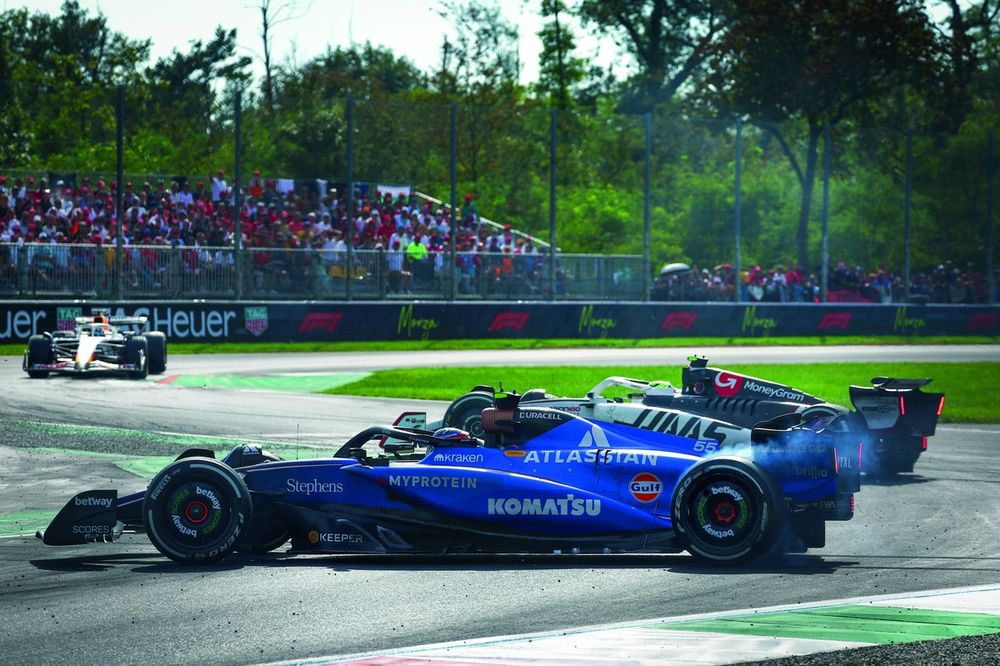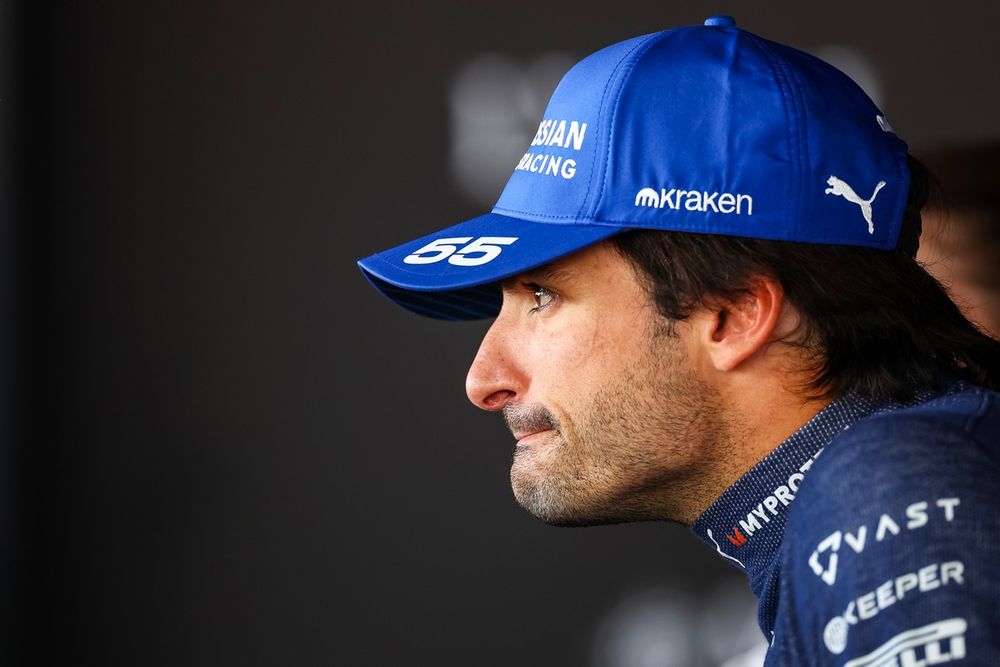
Formula 1 is set for further talks over its controversial racing guidelines at next week's Qatar Grand Prix after Oscar Piastri's Brazil penalty left drivers confused.
At Interlagos Piastri was handed a 10-second penalty for his part in a three-way Turn 1 collision with Andrea Kimi Antonelli and Charles Leclerc, which left the latter eliminated from the race.
The stewards argued the McLaren driver merited a penalty in accordance with the current racing guidelines, as Piastri was not ahead at the apex and Antonelli therefore technically didn't need to leave the Australian any room on the inside.
But the incident was the latest in a string of penalties that has left drivers confused and dissatisfied with the state of F1's stewarding, with the matter now put on the agenda of the drivers' annual catch-up with governing body the FIA in Qatar.
"I think we need urgently a catch-up and try and solve it, because for me the fact that Oscar got a penalty there in Brazil is unacceptable, honestly, for the category that we are in and being the pinnacle of motorsport," Williams driver and GDPA director Carlos Sainz said in Las Vegas.
"Everyone that's seen racing knows that that is not Oscar's fault at all, and everyone that's really raced a race car knows he could have done nothing to avoid an accident there and he got away with a 10-second penalty. For me it's something that I don't understand. I didn't understand my Zandvoort penalty, I didn't understand why Ollie [Bearman] got a penalty when we both collided in Monza.
"So there's been not one but multiple incidents this year that for me are far from where the sport should be."

The FIA is understood to welcome the drivers adding the topic to the agenda in Qatar to help refine the current guidelines, although even under the current wording the stewards are already free to go against them if required, rather than follow them as strict black and white regulations that must be adhered to at all times.
Sainz admitted the FIA is in a tricky position given the guidelines were implemented in the first place to improve consistency amid grey areas, but he felt events of the past season showed the current process isn't working.
"It's difficult to judge, because it could go both ways. You could criticise the way the guidelines are written and we ask the stewards to obviously apply those guidelines as firmly as possible and the stewards are just doing their job," he said.
"Or are the guidelines [just] guidelines and the stewards should take them as guidelines and not as black or white? It could go both ways. I'm not sure what the solution is, but it is very clear for me that after what I saw in Brazil, something is not quite working."
But the Spaniard did suggest that there's a strong case for permanent stewards with previous racing experience.
"With good and consistent stewarding - if they truly understand racing really well - through the year we would develop an understanding among us, and you would know when it's your fault. They would know when it's someone's fault and not," he explained.

"This is more my perception of things, but I think if we had three fixed guys, the same way that we have a fixed race director, and we know the way they've been applying penalties through years, then we create that muscle memory of how they tend to rate penalties.
"I honestly think, even without guidelines, we know when it's someone's fault or not, or when it's a simple racing mistake."
Sainz's Williams team-mate Alex Albon said he wasn't overly optimistic that the drivers and the FIA will agree on a singular solution, but did point out that by adding more and more regulations it's harder for the drivers to use the common sense that they have developed and applied since their karting days.
"I do feel like there is a feeling like the FIA are trying to come up with [a solution]. There's no ignorance in their approach and they are open-minded," he said. "We do appreciate that as drivers. Will it come to a clear rule set? I'm not sure.
"I think back when there were less rules, it was more of interpretation, so everyone had a bit more of a systemic approach to what was clean racing and what was not clean racing. And you kind of had to build that idea on yourself.
"Whereas now it's almost like there's these layers upon layers of rules. Then it just becomes confusing. I'd prefer it to be stripped back but then I know that adds more greyness."







Read and post comments